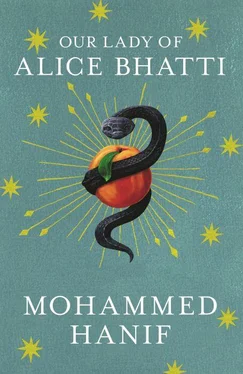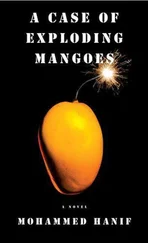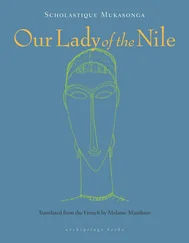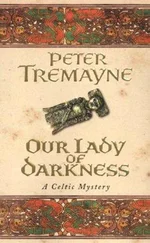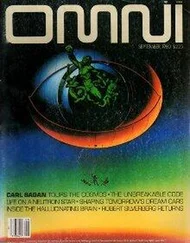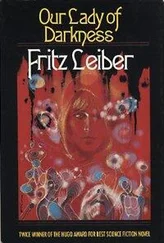The notes that Noor takes sitting in the corner of the room, a fat register on his thighs, will not really be looked at. Noor is not a factor and his notes will definitely not be a factor in the decision to give Alice the job. It’s a good thing that nobody asks him if he knows Alice, and if so where they met for the first time. Even at the age of seventeen, Noor knows that the appearance of the words Borstal Jail for Women and Children on anybody’s CV will not increase their chances in a job interview.
Noor is a record-keeper, a steno, a secretary for those who are not budgeted to have a proper secretary. He is a scribbler by day, Zainab’s son by night, and Dr Pereira’s pet around the clock. After all, it’s Dr Pereira who has plucked him and his mother from outside the gates of the Sacred, ignoring hundreds of patients waiting under the Old Doctor, a two-hundred-year-old peepul tree that was believed to provide medical care before they built a hospital and now just provides shade and firewood. It was Dr Pereira who gave them a bed, a job, a chance for Zainab to spend her last days in peace and for Noor to learn the skills that one needed to lead a fulfilled life. Noor is Dr Pereira’s ticket to salvation. When he sees the boy hunched over his register, scribbling, Dr Pereira’s heart swells with pride, he feels the hand of Lord Yassoo on his shoulder, His voice whispering Latin nothings in his ear.
Although Dr Pereira started him on his education right at the beginning, Noor wasn’t completely unlettered before he arrived at the Sacred.
He learnt the alphabet in the Borstal after resisting for a whole year. They were very good about certain things in the Borstal. They tried to teach you to wash your hands and they made you learn to read the alphabet and some easier bits from the Quran. They also tried to bugger you at every possible opportunity, but Noor figured out early on that the privileges that were promised after you conceded were temporary. You might get a vanilla ice cream or you might get taken out to a big mosque for Friday prayers, but there were never any guarantees. They could always beat you up and then accuse you of being a habitual homosexual. It wasn’t as if you could go to the jail superintendent and complain that promises had been broken. Also, if you let one of them bugger you and said no to the others, the others felt offended. They felt that they were being discriminated against. People might put up with discrimination in the outside world, but in the Borstal they expressed their hurt by leaving burning cigarettes on your mattress at night, or sometimes they just took away your mattress while you were in the bathroom. In the outside world it might sound like a small deprivation and people might say that no mattress is much better than a burning mattress, but there were no replacements and you ended up sleeping on the cement floor for the rest of your term. There is nothing scarier than a sixteen-year-old in the Borstal who feels he has been discriminated against. Noor made it clear from the start that he was not that type, that he didn’t like vanilla ice cream and had no particular interest in visiting the big mosque for Friday prayers. In fact, the first year he refused to learn a single letter of the alphabet, as he was certain in his eight-year-old’s mind that there was a direct link between A, B, C and someone’s hand creeping up your shorts.
Now Noor is learning to write properly. At the Sacred, he started by filling out admission forms, people’s names and their dates of birth, their dates of admission. Patients were baffled when he asked them to spell out their names, because many couldn’t spell their names or any other words. Nobody had ever asked them to spell anything. Most of them didn’t know that their name was made up of letters they should have learnt. Noor asked for their identity cards, or any other bit of paper that might have their name written on it.
Noor wants to get their names right. He wants to get everything right. And here is his first big interview, and he is worried whether Alice is going to get this job or not. He is obviously on her side, because she is the reason he ended up coming from the Borstal to the Sacred: she scribbled the address for him and insisted that he go there and ask for Dr Pereira. But sometimes she says things like what is the difference between a doctor and a donkey? Sometimes she says it in a room full of doctors. When Alice got out of the Borstal, he managed to wrangle an emergency shift for her and she turned up in her civilian clothes and an oversized white coat. Beneath that frayed and stained white coat she could have been a housemaid, newly homeless, or a prostitute fallen on bad times. He felt as if a poor, uncouth relative had walked in when he was trying to impress his new bosses. More than anything else he is worried about getting the minutes of this meeting right. Long after Alice has left the room he is still scribbling away.
Dr Pereira looks towards him and nods ever so slightly, a signal for him to find an excuse and leave the room. “Should I get some tea?” Noor asks, then closes his register carefully, puts it on his chair and leaves. As soon as he shuts the door, he starts to run and skip. Inside the room he is a brooding, attentive lackey; outside in the corridors of the Sacred he practises a bit of careless living, which, despite his precocious burden, he knows that as a seventeen-year-old he is entitled to.
When people see Noor, their first reaction is, look at that poor little boy, what a pity, working when he should be playing, but they can keep their pity to themselves because Noor considers himself a man of this world. More than even the harsh nights at the Borstal, he remembers waiting outside the gates of the Sacred. He and Zainab stood at the gate for two full days, and although it wasn’t the kind of gate where anyone was stopped, the guard wouldn’t let them in because they looked like a pair of vagrants, the kind of people who would try to walk through every gate they saw. Someone threw them a half-rotten orange. A beggar walked by and advised them that it was an unlucky spot for starting this kind of work.
People could have called him a poor little boy then because he was the only child of Zainab, and had nobody in the world except some kind friends who were still in jail, who had altered an old pair of trousers for him, stuffed ten one-rupee notes in his pocket and promised to look him up when he became an officer in a big bank. But now Noor is not a poor little boy. He is a ward boy. His name is not on the employees’ list but he has more responsibilities than any paramedic with a full-time, pensionable job. His services are acknowledged. Zainab may not be in the best of health, but she has her own bed, adjustable, it goes up and down; it has a pillow, a blanket, sheets that get changed every few weeks; a curtain separates her from the other miserable wretches on the ward. There are hundreds of patients who are envious, who are eyeing that bed. All the people under the Old Doctor are practically on the waiting list.
It has taken him three years to achieve his place in life, but Noor is a man now. He puts food on the table even though there is no table. He fills up the registers in the hospital. On the night of the Garden East attacks, when all the doctors and sisters had their hands full, he took out a bullet from the shoulder of a victim. He hasn’t read Gray’s Anatomy , but there is nothing in that fat book that he hasn’t seen strewn on the floor of A&E. “We stitched up one hundred and forty-three people that night,” he boasts to anyone who is interested in those kinds of statistics. They also charged the relatives of the deceased five hundred rupees each for not carrying out post-mortems. Dr John Malick, the medico-legal officer at the Sacred, had his gloved hands drenched in blood and his white coat’s pockets brimming full with five-hundred-rupee notes. “Look, we live in a city where you can get someone cut up for a thousand rupees. What is wrong with charging them half that money for not cutting them up? Do they want a post-mortem? No. Are they interested in the cause of death? No. Does it really matter to them if their lungs gave up first or their heart went pachuk? For them the cause of death is death; they died because death arrived in Garden East and they happened to be buying vegetables there. So buying vegetables is as valid a cause of death as any.” Noor obviously never got any share of that money, just a bun kebab and a can of Pepsi and a big box of diazepam for his mother. He managed to get Alice Bhatti on the shift, though. They needed help, and when he told Dr Malick that he knew this nurse who was between jobs, Malick just nodded and moved on to the next casualty. “A shift here and a shift there,” Noor whispered excitedly in Alice Bhatti’s ear. “And before they know it, you’ll have a full-time job here.” They were surrounded by eight gunnysacks full of body parts that couldn’t be identified and placed with any of the deceased.
Читать дальше
